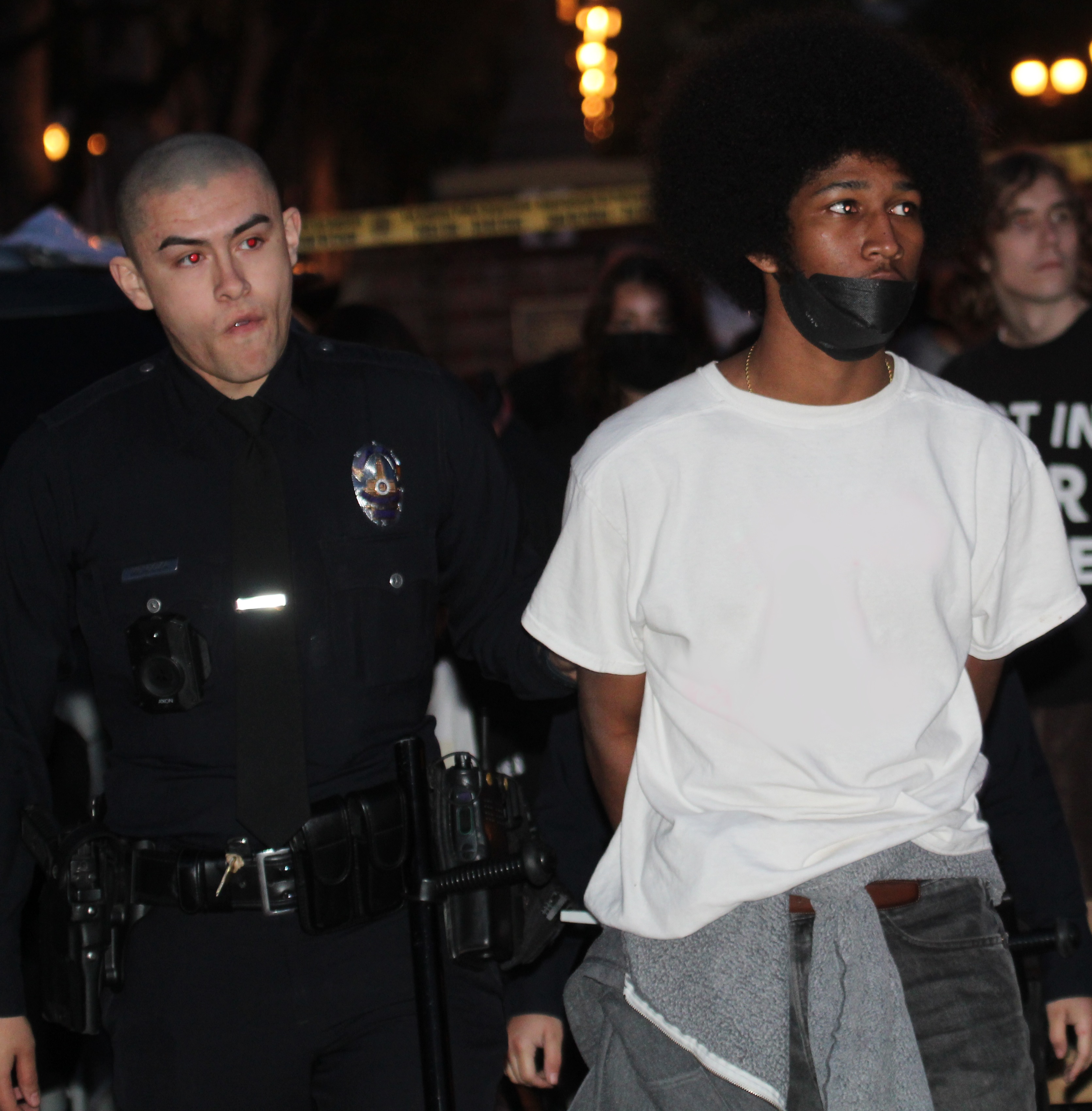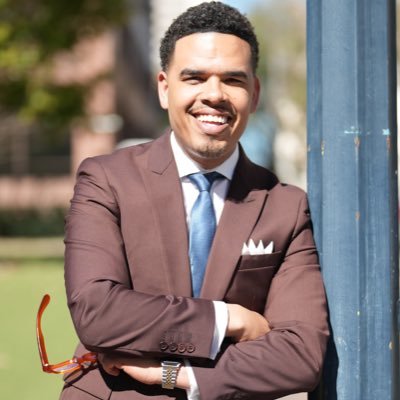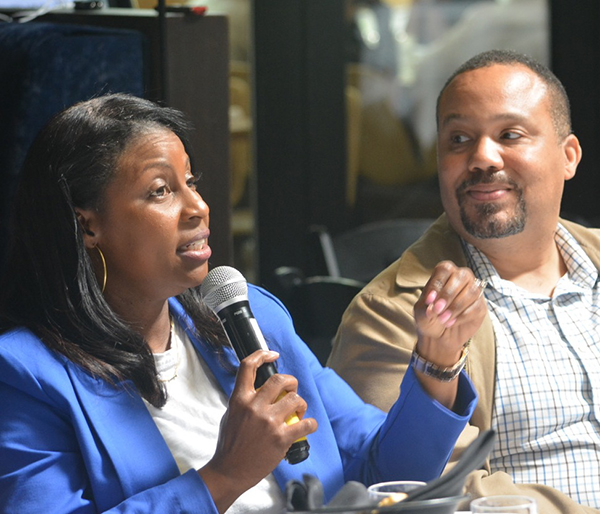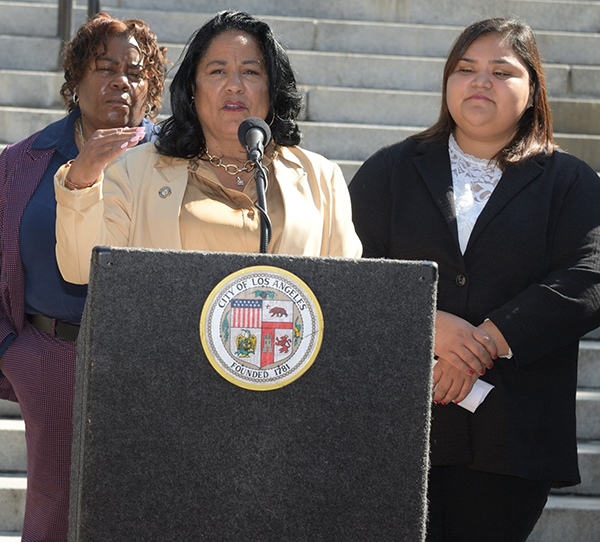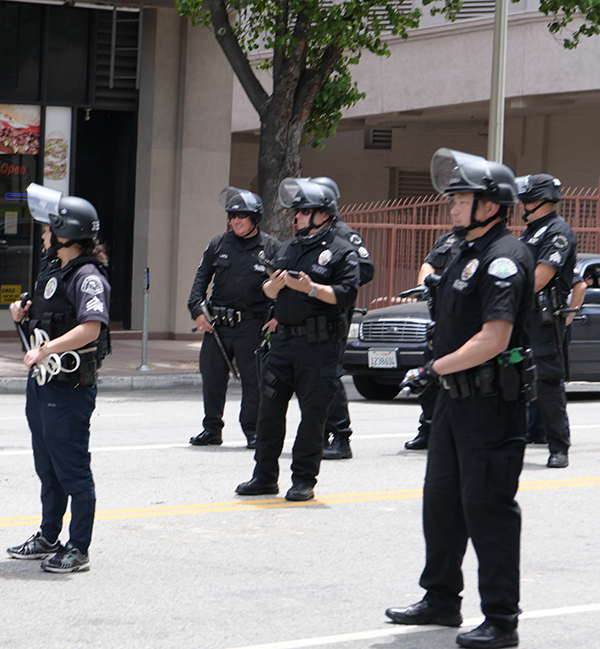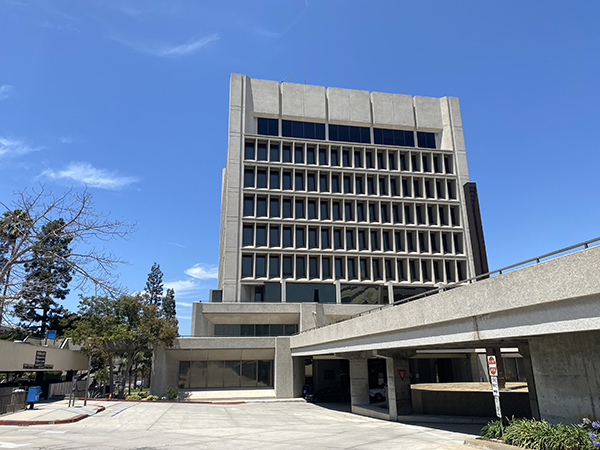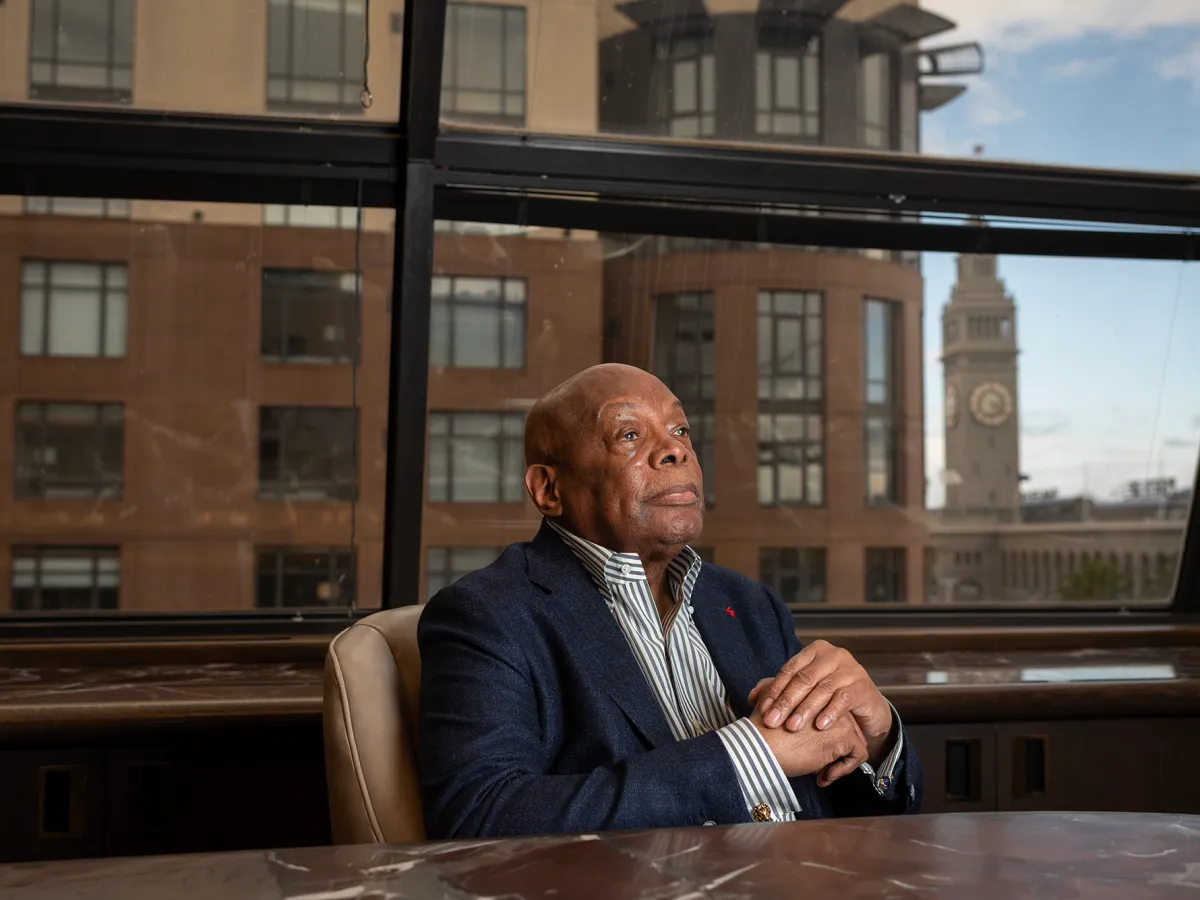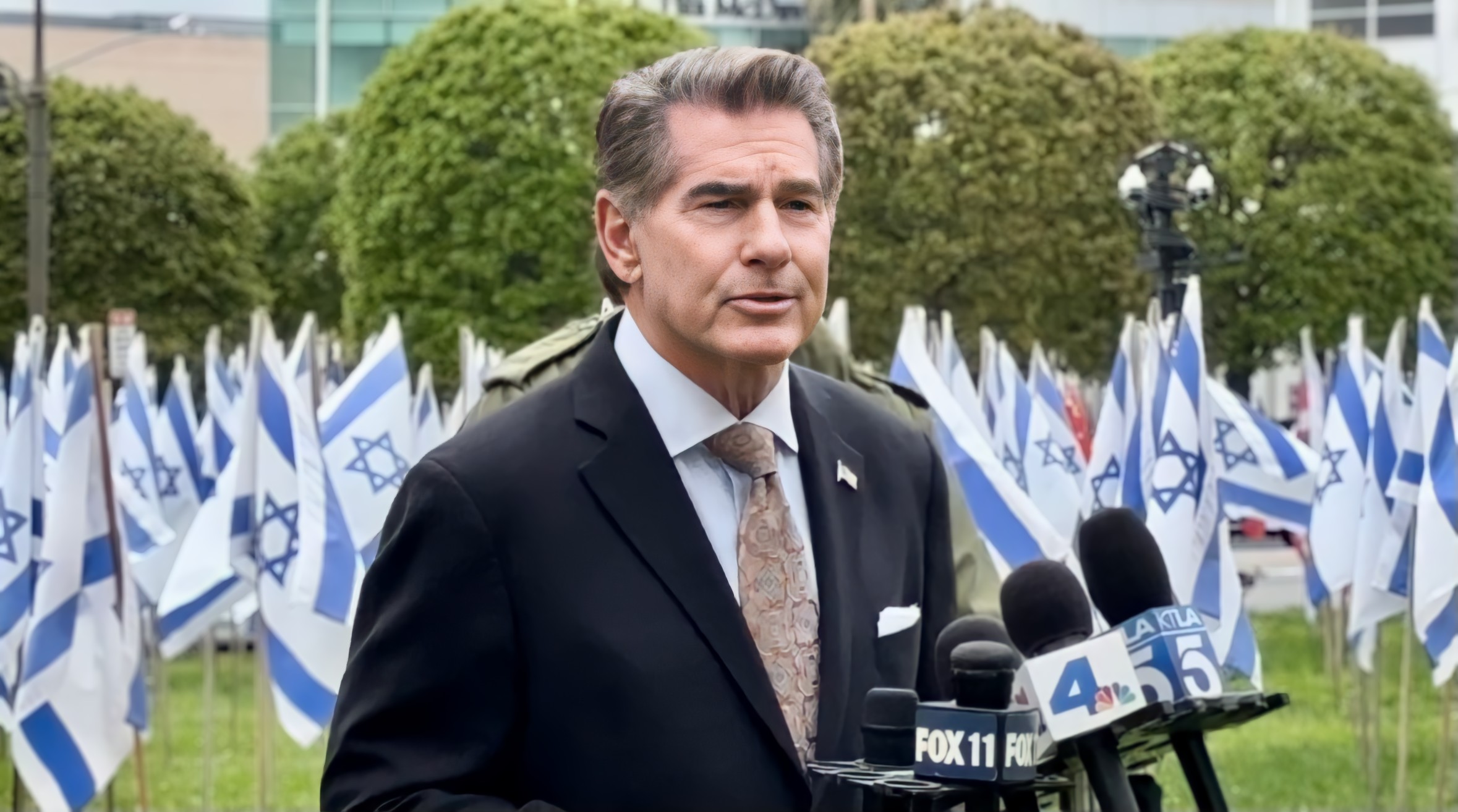At 90, Political Icon Still Dominates Every Room He Enters
As Willie Brown turns 90 years old, the California political giant reflected on his career, the state of politics and his induction into the California Hall of Fame. Many in the political realm still seek his counsel.
By JAMES RICHARDSON, CalMatters
Willie Brown Jr., one of the most flamboyant and powerful politicians California has ever known, was delivered into this world by a midwife in his grandmother’s drafty, white clapboard house in segregated Mineola, Texas.
Next week, he will turn 90 years old.
Brown still dominates every room he enters with his smarts and swagger. His advice — and connections — are still sought by friends and even former adversaries.
Brown became the most powerful Black politician in the country in the 1980s and ’90s as California Assembly Speaker, serving a record 14 years. After he termed out, he was then elected mayor of San Francisco for eight years.
“I’d still be a speaker without term limits,” Brown proclaimed to laughs at his recent induction to the California Hall of Fame.
When I was a reporter for The Sacramento Bee, I wrote a 500-page independent biography of Brown, but we hadn’t talked much since he left office as mayor 20 years ago. Recently, we sat down at a corner table for lunch at Sam’s Grill in San Francisco. Brown took his usual seat facing the door where he could see who was coming and going.
We talked for two hours as a steady stream of friends and well-wishers stopped by his table. One of his lawyer friends sat down with us. Three former San Francisco firefighters also stopped to talk and gave him a thumbs up on their way out the door. Former Assemblyman Rusty Areias even ambled by to sit and chat for a few minutes.
“He’s not only smart and a great example, he is a lot of fun to be with,” Areias told me a few days later. “He did not let the old man in.”
Brown’s eyesight continues to deteriorate from retinitis pigmentosa, diagnosed decades ago. He said he doesn’t watch much television because it’s hard for him to see the screen. He prefers listening to audiobooks.
Brown looks a little grayer and paunchier, but his mind — and tongue — is sharp as ever. As we talked, Brown spun off political opinions and observations. He predicted that President Joe Biden, “the best candidate Democrats have,” would win re-election.
Brown had recently finished listening to the book “The Accidental President” by A.J. Baime, chronicling how Harry Truman upset the pundits and prognosticators by beating frontrunner Republican Thomas Dewey in 1948.
“Biden has the same kind of crazy Congress,” Brown said. “His opponent is crazier than Dewey.”
And Brown knows Donald Trump.
As reported by journalist Dan Morain in his book “Kamala’s Way,” Brown and his friends, including his then-girlfriend Kamala Harris, were visiting Boston in 1994 when Trump sent his private jet to fetch them to New York to discuss a hotel project in Los Angeles (the deal never materialized).
Vice President Harris got her start in politics when Speaker Brown appointed her to a state board reviewing appeals for those denied jobless benefits.
On the night he was elected San Francisco mayor, Harris was by his side and gave him a black baseball cap emblazoned with “DA MAYOR” in gold letters. Their romantic relationship ended soon after, but Brown continued giving her political advice, particularly when she ran for U.S. Senate.
Years later, their relationship fueled a news cycle during Biden’s 2020 presidential campaign. I asked if he still talks with Harris.
“Not anymore,” he replied. “She doesn’t talk to me. I’d love to talk to her. She was a good friend.”
Brown migrated from Texas to California in 1952, virtually penniless. He made his way through San Francisco State working in his uncle’s underground casino. He went to Hastings law school and became a protege of U.S. Rep. Phil Burton, the older brother of John Burton.
Elected to the Assembly in 1964, Brown entered office when Pat Brown was governor. His political career spanned seven governors, in fact. He was actively involved in the presidential campaigns of Robert Kennedy and George McGovern. The tragic assassination of his close friend, San Francisco Mayor George Moscone, occurred minutes after Willie Brown had left his office.
Elected Assembly speaker in 1980, Brown relished controversy. He tangled with governors, including in an epic 64-day state budget stalemate with Gov. Pete Wilson over education funding. The state notoriously issued IOU’s during their standoff.
It was widely felt that Wilson caved to Brown, who once called himself the “King Kong of California politics.”
But his critics accused him of being too cozy with developers and favoring allies for city contracts. For five years, the FBI investigated City Hall to root out corruption – which began in part because of his own request for the bureau to intervene. Few prosecutions resulted, and Brown was never indicted, claiming the probes were politically motivated.
He also embraced a high-rise building boom in San Francisco that priced-out working- and middle-class residents. Brown now lives in one of those high-rises, the 58-story Millennium Tower.
“Those are the fun days,” he said. “As I reflected on it, the world of politics in those days was enjoyable.”
Despite all of the current rancor, he remains hopeful about the state of politics.
“I’ve got optimism,” Brown said. “I do think, frankly, that there are newcomers who really are about trying to achieve. And they are not buying-in exclusively to the process of parties. Whether Democrats or Republicans or progressives, they really do have a desire to achieve.
“That gives me hope for the whole system.”
Brown stays in touch with old colleagues, including current and former governors. “I’ll get a call from Pete Wilson because they’ve asked him about something in government,” Brown said, “and he calls me.”
Willie Brown doesn’t talk much with Jerry Brown. I asked him what he thought of Jerry Brown’s second act as governor. He replied that the era of term limits created an inexperienced Legislature, shifting expertise and power to governors and their staffs.
“Nobody would challenge Jerry Brown on anything, so Jerry Brown enjoyed a dictatorship, literally, as governor.”
As speaker, Willie Brown was known for publicly punishing his adversaries, but also for not leaving them out in the cold for long. I mentioned this to Brown, and he nodded, pointing to the chair where Areias had sat when he stopped by our lunch table.
Areias was part of a group of Democrats, known as the “Gang of Five,” who tried to overthrow Brown as speaker in 1988. Areias now enjoys a close friendship with Brown, lunching with him once a week.
“Willie and I got in a big fight that was pretty public years ago,” Areias recalled, “but I remember him calling me one day and he said, ‘You know, we’ll get past it and there’s gonna be a lot of good times ahead.’”
As San Francisco mayor, Brown presided over the sprucing up of the Embarcadero, opening day care centers and building a new ballpark for the Giants. In an interview as he left office, Brown told me it was “the most enjoyable eight years of my political existence.”
As Brown reaches his 90th birthday, the accolades and honors that eluded him when he held elective office have been rolling in. In February, he was inducted by Gov. Gavin Newsom into the California Hall of Fame.
“It meant a lot to him,” said longtime political consultant Gale Kaufman, who talks with Brown frequently. “There is a new generation not as familiar with his history and importance to California politics.”
As the ceremony began, Newsom upstaged the official host – his wife, Jennifer – to pour praise on Brown.
“I’m standing here because of Willie Brown,” Newsom said, recalling his start in politics with an appointment from Brown to a San Francisco traffic commission. “And that was a simple appointment that changed the trajectory of my life.”
Many politicians still seek Brown’s advice.
“I am awed every time I have an opportunity to be in his presence and to speak with him,” said Sacramento Mayor Darrell Steinberg, a former Assemblymember and Senate President Pro Tem. “Age does not seem to have diminished anything about him. His intellect, his wit, his knowledge, his keeping up with politics and current events.”
Republicans who vociferously opposed him now express admiration. Bill Baker, a Republican who once represented Contra Costa County in the Assembly, was the point person for the GOP caucus on the state budget at the time, and their disagreements were sharp.
“He was a great speaker,” Baker recently told me. “He made the Assembly run about as well as any one person can, and all you have to do now is look at how this has become so (partisan).”
In retirement, Brown maintains what he calls his “circuit”: a regular schedule for eating at a different San Francisco eatery each day of the week to support restaurants after the pandemic lockdown lifted. If it’s Friday, he’s at Le Central.
He also has lunch once a month with Nancy Pelosi and her husband Paul when they are in town.
“I don’t think he’s slowed down on any level,” said Kaufman.
Brown has outlived most of his peers and contemporaries. He recently attended a gathering to remember Phillip Isenberg, five years his junior, who got his start in politics working in Brown’s law office. Isenberg was later elected mayor of Sacramento and then served in the Assembly for 14 years.
Looking dapper, Brown sat in the front row at Isenberg’s remembrance. Although Brown didn’t speak, several who did began by paying tribute to Brown. Former California Chief Justice Tani G. Cantil-Sakauye, for example, lauded Brown and Isenberg together as “altruistic co-conspirators.”
The death that has hit Brown the hardest, he told me, was Eleanor Johns, his chief of staff and personal assistant for 40 years.
“She was so much a part of me that when she died last April,” he said wistfully, “a few days later, I had to pay some bills. I signed a check, and the bank wouldn’t take it because I had not signed a check in 30 or more years.”
His friends will stage a series of birthday celebrations for Brown this month, and they promise to be over-the-top.
As my lunch with Brown came to a close, I asked him what he wanted to do next.
He didn’t hesitate to answer.
“Try to make it to 91.”
James Richardson is a former senior writer with The Sacramento Bee and the author of “Willie Brown: A Biography.” His latest book is “The Abolitionist’s Journal: Memories of an American Antislavery Family.”

